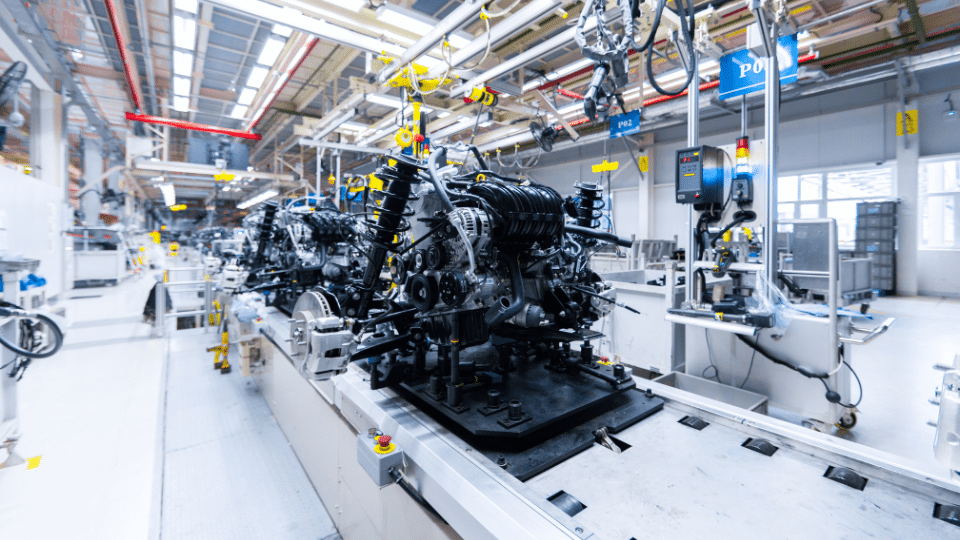
Valuations are a key element in any M&A transaction. When it comes to valuing auto aftermarket companies, there are many different factors that can influence a company’s worth—and not simply its profitability. Perhaps even more important these days is what part of the business you are in—tires & service, parts & accessories, retail or wholesale (B2B), and brick-and-mortar versus e-commerce.
Each of these sectors has very different valuations. So it’s possible that a more profitable company that specializes in one aspect can be more valuable than a less profitable company in a different line. For example, other things being equal, e-commerce companies tend to be worth more than brick-and-mortar operations. Branded retail is worth more than wholesale. Tires are more valuable than parts & accessories. It’s important to understand these valuation trends in order to make informed decisions when it comes to selling your auto aftermarket company or buying one.
Let’s take a look at some of the key factors that can impact a company’s valuation in today’s market.
Tires & service
Tire sales remain one of the most profitable components of an auto aftermarket business. The demand for quality tires is always high as drivers want to ensure their vehicles are safe on the road. As such, tire sales represent a reliable source of revenue. The number of tires the business sells and a consistent revenue stream from them will have a direct impact on its overall valuation.
The biggest question facing the auto aftermarket business—all businesses, in fact—is whether the U.S. economy will fall into recession, and if so, when and how deep will it be. That’s one big advantage for the tire business. While no business is completely recession-proof, necessities like tires & service are likely to continue growing, or at least remain stable, even in a recession. That makes them particularly valuable in today’s market.
Parts & accessories
The sale of parts and accessories is another major revenue stream for auto aftermarket companies. These items can range from performance upgrades to replacement parts and anything else that may be needed to keep a vehicle running at its best. Many customers rely on their local auto shop or online retailer for these items due to their convenience and availability. As such, these items can help increase an auto aftermarket business’s overall value if they are sold in large quantities or if they have high margins associated with them.
With all of the consolidation that has been going on in the auto aftermarket the past several years, you would think that there’s no more room to consolidate. That’s actually not true. The parts business remains highly fragmented. FOCUS estimates that only about 35% of the industry is owned by private equity or other investors, meaning that about two-thirds of the players remain independent, many of them small. So there are still plenty of opportunities for consolidation.
In particular, private equity is looking for add-ons to their existing platforms. We are also seeing some PE groups moving down-market and picking up smaller companies to add to their portfolios. In the past, perhaps, they would have limited their appetite to a $15 to 20 million business to use as a platform. Now they are looking at adding $10 million businesses in adjacent verticals or markets.
Retail versus wholesale
Auto aftermarket businesses often operate both retail and wholesale operations in order to maximize profits and serve all types of customers. Retail operations involve selling directly to individual customers (B2C) while wholesale operations (B2B) sell products directly to repair shops who in turn resell those products to their customers. Both types of operations can contribute significantly to a company’s value depending on how successful they are in meeting customer demand and generating profits.
However, if you are only reselling the same parts and accessories as your competitors, your business is less likely to fetch a premium valuation. You may have a very profitable business, but if you are not selling anything that is not proprietary—which carry higher margins—you may have a more difficult time finding buyers. While selling parts & accessories is an essential business, it tends to be a low-margin operation, therefore multiples are usually lower. Prospective buyers tend to be more strategic, while private equity tends to have less interest in low-margin businesses.
E-commerce versus brick-and-mortar
Generally e-commerce companies tend to be worth more than brick-and-mortar retailers. But that’s only true if they have a defensible market position. Selling proprietary products versus commodity products increases valuations. Likewise, e-commerce companies that also have a physical stores, where customers can pick up their purchases the same day, are worth more than those companies that don’t offer that option. E-commerce retailers that do both B2C and B2B also tend to be worth more than those that do only one or the other.
Conclusion and next steps
Understanding how various factors affect valuations in the auto aftermarket is essential for making informed decisions when it comes time to buy or sell. Overall, valuations as we enter 2023 have been fairly strong and stable. While rising interest rates and concerns about a recession are keeping a lid on valuations, what is keeping them stable is the large number of buyers still out there and the large amount of “dry powder” they possess and the urgency they have to put it to work.
Unlike in past recessions, the amount of capital available on the sidelines to invest in private companies has never been greater—an estimated $3 trillion. We count more than 300 private equity companies and other potential buyers in our database that focus only on automotive investments, and that number continues to grow. They see the automotive segment as a large and mostly recession-resistant industry. While valuations may not be as lofty as 2021, the sheer number of investors and capital available makes the market stronger than one would expect.
Nevertheless, buyers are being more discriminating and careful than they were two years ago. Due diligence is taking place earlier in the process, even before the prospective buyer signs a non-binding Indication of Interest, never mind an actual Letter of Intent. So if you want to get the highest valuation for your company, there’s no substitute for a well-run operation, regardless of what sector you’re in.
But timing is crucial. While the market remains strong today, there’s no guarantee that will be true six months or a year from now. So if you’re thinking of bringing your company to market, now isn’t too soon to get the process rolling.
This article was previously published on Tire Business.
Giorgio Andonian is a Managing Director in FOCUS Investment Banking’s Auto Aftermarket Group. With a lifetime spent in is family’s automotive business, he now advises and assists privately held middle market auto aftermarket companies with mergers and acquisitions. Contact Giorgio at [email protected].













